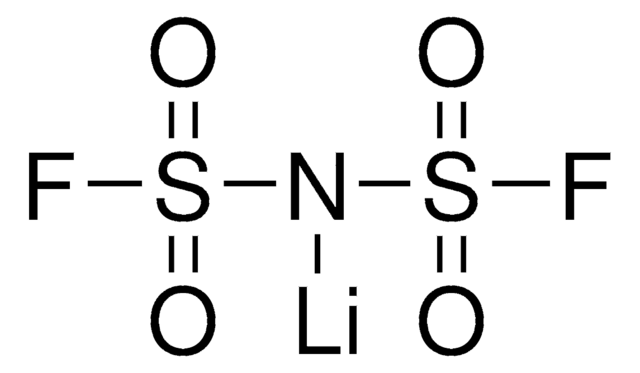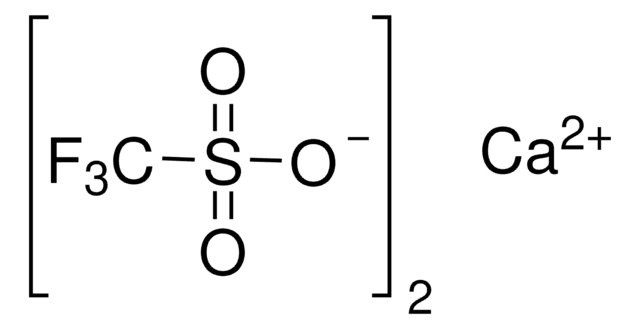282669
Lithium trifluoromethanesulfonate
96%
Synonym(s):
LiTf, Lithium triflate, Trifluoromethanesulfonic acid lithium salt
About This Item
Recommended Products
Assay
96%
form
powder
mp
>300 °C (lit.)
SMILES string
[Li+].[O-]S(=O)(=O)C(F)(F)F
InChI
1S/CHF3O3S.Li/c2-1(3,4)8(5,6)7;/h(H,5,6,7);/q;+1/p-1
InChI key
MCVFFRWZNYZUIJ-UHFFFAOYSA-M
Looking for similar products? Visit Product Comparison Guide
Application
- As an electrolyte salt to determine the thermal stability of graphite anodes in Li-ion batteries.
- For the synthesis of solid polymer electrolytes with polyethylene oxide and chitosan, having potential applications in solid state batteries.
- As a source of triflate anion (CF3SO3−) to synthesize ionic liquids for further syntheses of conducting polymer electrolytes.
Signal Word
Warning
Hazard Statements
Precautionary Statements
Hazard Classifications
Eye Irrit. 2 - Skin Irrit. 2 - STOT SE 3
Target Organs
Respiratory system
Storage Class Code
11 - Combustible Solids
WGK
WGK 3
Personal Protective Equipment
Certificates of Analysis (COA)
Search for Certificates of Analysis (COA) by entering the products Lot/Batch Number. Lot and Batch Numbers can be found on a product’s label following the words ‘Lot’ or ‘Batch’.
Already Own This Product?
Find documentation for the products that you have recently purchased in the Document Library.
Customers Also Viewed
Our team of scientists has experience in all areas of research including Life Science, Material Science, Chemical Synthesis, Chromatography, Analytical and many others.
Contact Technical Service















